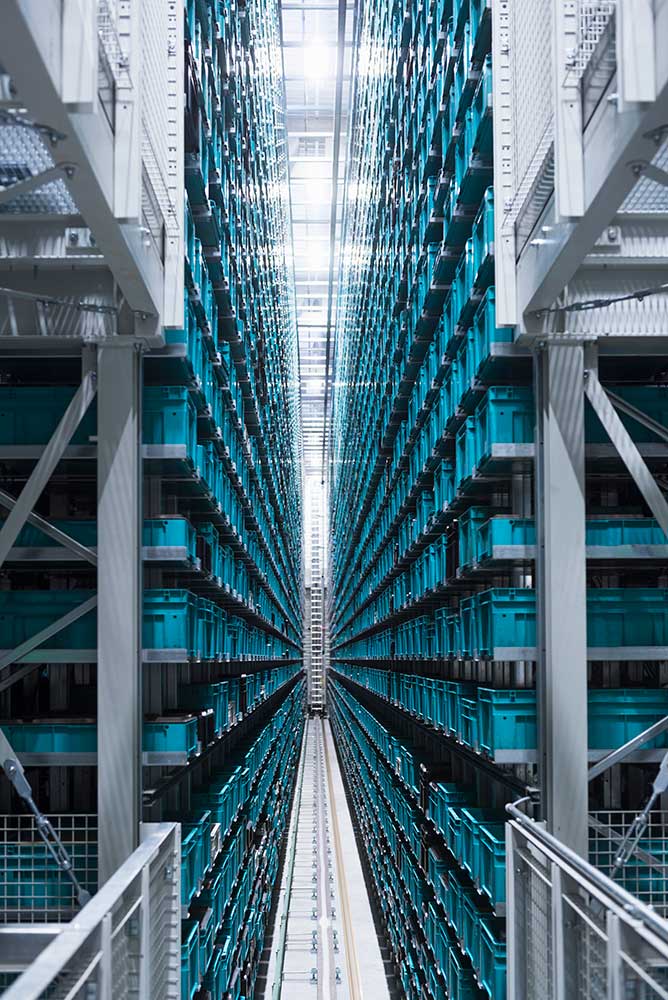We cannot rely on normal evolution to achieve our goals
tec.news spoke with Sven Markert, Head of Supply Chain & Logistics, Siemens Smart Infrastructure. Sven Markert has over 30 years of experience in dealing with supply chain issues and has worked for Siemens for more than 21 years.
tec.news: What goals has Siemens set in terms of sustainability?
S. Markert: At Siemens, the topic of sustainability has been relevant since the 1970s. Since then, however, we have significantly expanded our approach. Today we are working with a holistic framework that we defined ourselves for the company – and together with this framework we are taking our commitment to a new level. It is called “DEGREE” and it is based on six fields of action relating to sustainability, which we will continue to develop dynamically and continuously in the future. In concrete terms, these fields cover the following:
- Decarbonisation: Supporting the 1.5 degrees Celsius target to curb global warming
- Ethics: Promoting a culture of trust, adhering to ethical standards and handling data with due care.
- Governance: Utilising the most advanced systems for effective and responsible business behaviour.
- Resource Efficiency: Achieving circular economy and dematerialisation objectives
- Equity: Promoting diversity, inclusion and community so as to create a sense of belonging.
- Employability: Empowering our employees to remain resilient and relevant in an ever-changing environment.
This framework was presented by Judith Wiese, Chief People and Sustainability Officer and member of the board of Siemens AG, at this year’s Supply Chain Sustainability Day.
For us, there are many projects that are relevant in terms of sustainability – from small pilot projects in e-mobility through to intelligent transport control and the entire planning of the supply chain. Here, the most important lever is entire overall network planning.
tec.news: How will the topic of sustainability impact on logistics in the coming years – in the medium and long term?
S. Markert: We currently have around 500,000 products in the field, each with their own product footprints. For us this means that we cannot rely on normal evolution to achieve our set goals. All stakeholders and business units are currently subject to continuous change, and this also applies to supply chains and logistics. In the future, sustainability will be an equally important issue alongside the aspects of costs, liquidity and performance.
tec.news: Can logistics ever be genuinely sustainable?
S. Markert: Transport is a consumption of resources and when we look at it from the perspective of sustainability, it is quite simply THE consumption factor. Transport must therefore be as resource-saving as possible. At Siemens, we speak of "glocalisation", where we focus on the consumptive factor in transport and regionalisation issues with regard to optimisation potential. One thing is certain: international transport and the export business will continue to play an important role. We will not be able to produce everything locally to the smallest unit numbers either – so we have to be resource-efficient. With regard to the supply chain, for example, this means that the entire network design must achieve the best possible combination. Likewise, as a result of glocalisation, there will be a shift in the current trend towards batch size 1. In the end, it’s about striking the right balance: we will not be able to produce everything locally, globalisation will continue and transport must respond to this with the best possible supply chain design.
tec.news: How can you increase customer awareness of sustainability issues?
S. Markert: Basically, the topic is currently on everyone's lips – so it’s not really necessary to raise awareness. But we continue to do so anyway: through our media presence, as a topic at Capital Marketing Days and Supply Chain Sustainability Days, as well as at supplier days at regional levels. At the same time, we also clearly communicate our expectations in this context.
tec.news: In your personal opinion, what do you regard as the greatest challenges on the path to achieving climate neutrality in the future?
S. Markert: Naturally, certifications, qualifications and product requirements are always a challenge, but I still think that technical problems can always be solved easily. In my opinion, the biggest challenge will be attempting to bring about a cultural change of the entire system. With a view to the customer, this means that they, too, will be required to play their part. If a customer wants our portfolio to be completely carbon-neutral, but does not accept change and limitations, this will be difficult to reconcile. The path to carbon neutrality will involve investment and compromises and we will be faced with an important decision: which compromises will I make, and which cherished habits do I change?
tec.news: What are the quick-wins in your view?
S. Markert: Just do it, don't get stuck with discussions and analyses, just get started right away. These can also be smaller projects within a defined framework, for example from product development. But, of course, there are also examples of this kind in logistics, such as the switch to electric vehicles with guaranteed green electricity.
tec.news: Where do you perceive logistics in terms of sustainability in the year 2030 or 2050?
S. Markert: Naturally, we have set appropriate targets for the supply chain and logistics for 2030 and 2050. I fundamentally believe that sustainability is a unique selling proposition and will increasingly become the dominating factor. Companies that cannot cope with the complex requirements of a sustainable supply chain will not survive on the markets over the long term. Many companies will need to reinvent their business models. And for us, too, sustainable supply chains and sustainable logistics play a deeply integrated and vital role in securing our future.

